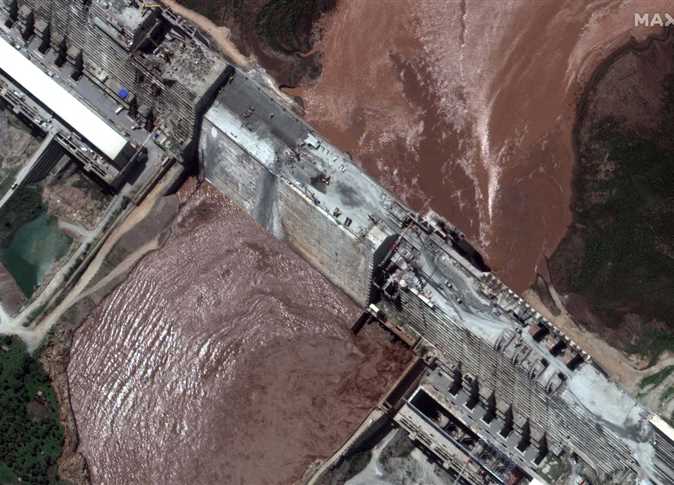
Egyptian President Abdel Fattah al-Sisi stressed his demands for a fair, balanced and legally binding agreement regulating the process of filling and operating the Grand Ethiopian Renaissance Dam (GERD), done within an appropriate time frame and without any unilateral interference.
His statements came on Saturday during a joint press conference with Senegalese President Macky Sall, whose visit to Cairo coincides with his upcoming assumption of the presidency of the African Union.
Sisi said that his discussions with President Sall dealt with developments related to the GERD, and presented Egypt’s vision of the Nile River as a source of cooperation and development – becoming a comprehensive lifeline for the various peoples of the Nile Basin.
The Egyptian President added that he also discussed some current regional and international issues, and stressed Egypt’s interest in maintaining peace and security on the continent, especially within East Africa and the Horn of Africa.
Negotiations over the GERD have officially stopped since April 2021, after Egypt, Sudan and Ethiopia failed to reach an understanding before the start of the second filling of the dam, which Ethiopia implemented in July.
Cairo and Khartoum reject Ethiopia’s insistence on filling the dam before reaching a binding agreement on filling and operation.
Egypt, which relies considerably on freshwater from the Nile, has voiced fears that the GERD would negatively impact the country’s water supply, and has insisted that measures be put into place to protect downstream countries in case of drought during the dam’s filling process.
Egypt and Sudan say they want a legally binding agreement, while Ethiopia says any pact should be advisory. Egypt and Sudan consider the dam a threat to their vital water supplies, while Ethiopia considers it essential for development and doubling its electricity production.
The downstream nations fear possible blows to water facilities, agricultural land, and overall availability of Nile water.
Negotiations over the dam between Egypt, Ethiopia, and Sudan have stalled for years, with the three parties ultimately failing to reach any concrete agreement.
The disputed dam is the largest hydroelectric project in Africa, with a cost of more than four billion dollars. The construction of the dam began in 2011.
It is considered to be one of Egypt’s most serious water issues.




